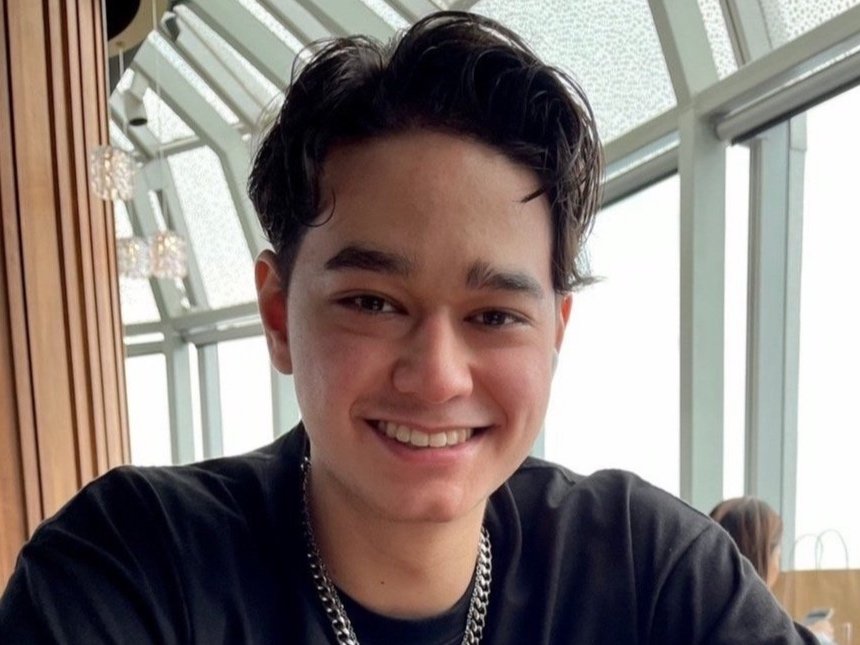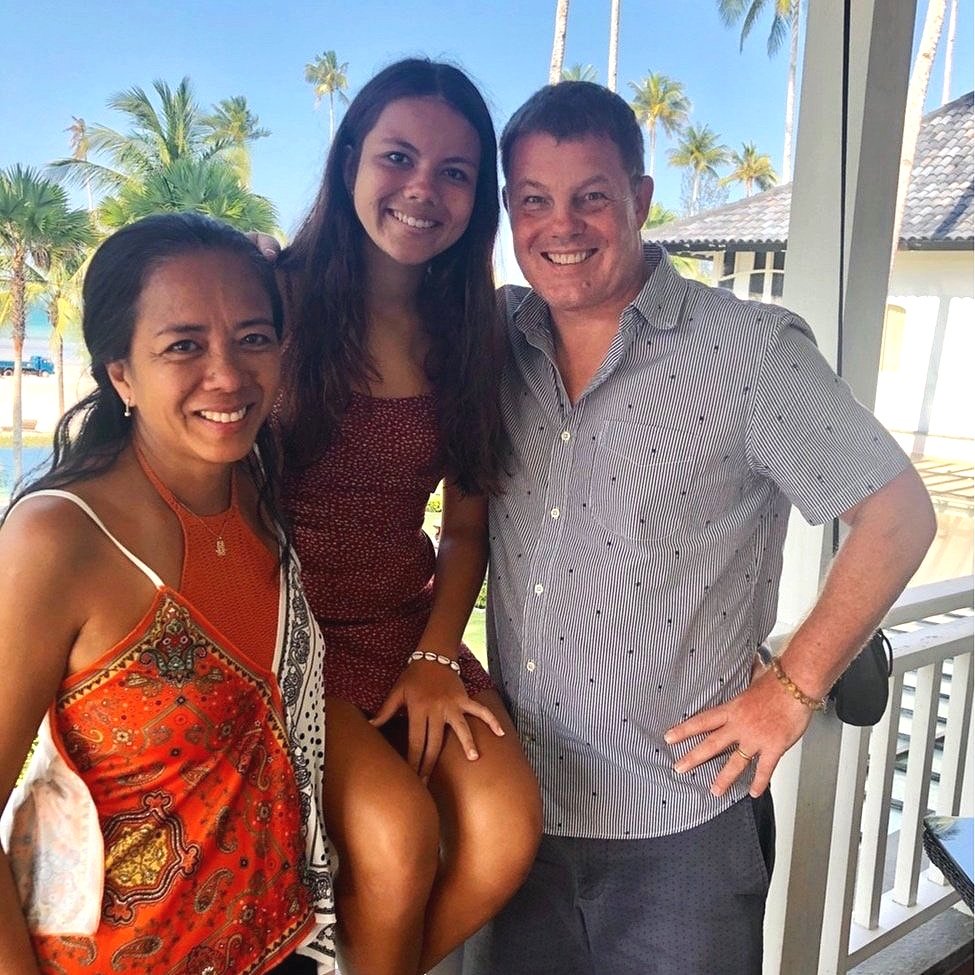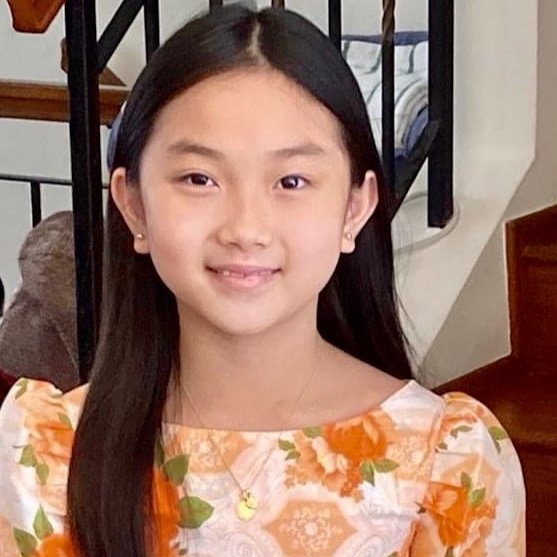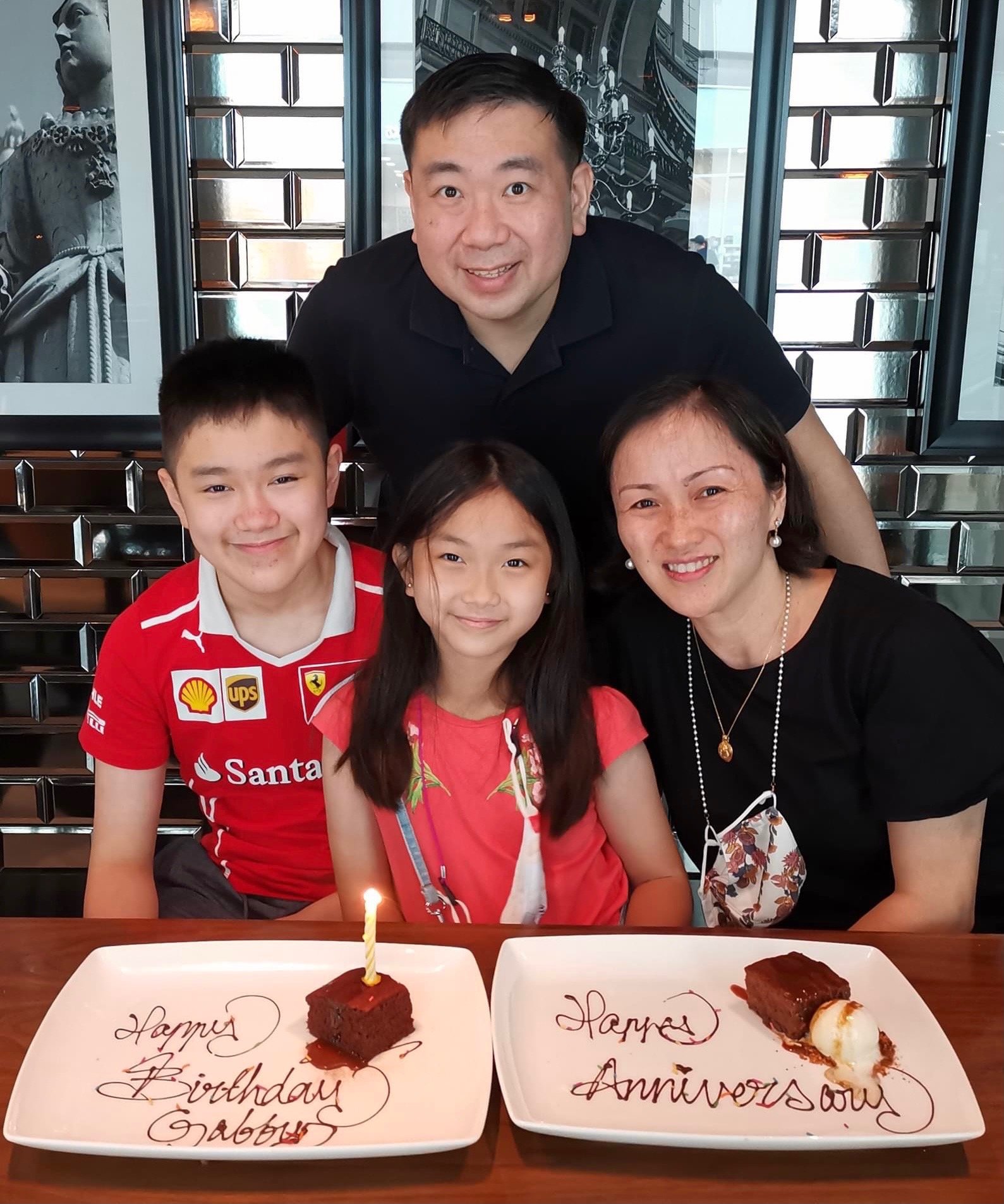Third Culture Kids: At Home In Their Own Skin
“Where are you from?” A geographic location may not be the best answer.
To many expat sons and daughters of career parents who spend a considerable portion of their formative years overseas, the answer does not come easily.
Daniel, Heather, Gabby and Gia are Third Culture Kids (TCK) who reside outside of their passport country. The world is their village. They have learned to be at home in their own skin. They move in and move on. In a sense, they are the ideal citizens of a globalised world.
Daniel, 18
Heather, 17
Gabby, 13 and Gia, 9
Used to floating between countries, their friends are an assortment of nationalities worthy of a junior U.N. assembly. What makes them unique is their ability to assimilate and integrate aspects of cultures where they live, with their parents’ culture, into a third, distinctly different culture. They are more independent, more curious, more flexible and more comfortable with change.
As a result TCKs begin to shape their own culture, often developing a more international outlook when they reach adulthood.
Third Culture Kids is a term coined by Drs. Ruth and John Useem more than 50 years ago. They also go by the label global nomads, transnational, transcultural and internationally mobile children.
Daniel with Mom Roxanne and Dad Fergus
Daniel, 18, has lived his whole life in an environment with kids of different races and backgrounds. He’s currently a senior at the Singapore American School.
Holding British and Philippine passports, Daniel was born in London, where he lived for the first 14 months of his life. He has relocated a few times since due to his mother’s job – Bangkok for 2 years, Manila for 6 months, and finally to Singapore when he was 4 years old.
Daniel recounts: “I’ve always had people around me who are different and you just live with it. It doesn’t really matter who they are or where they come from. It’s about personality.
If you are looking for someone to be your friend, you wouldn’t say ‘I don’t like him because he doesn’t believe in Jesus Christ,’ for example. That would be xenophobic. It shouldn’t matter what they believe in as long as you get along.
I remember reading something like ‘If a piano had the same sound on every key, well, what could you do with it?’ It would have a very boring sound.”
Wearing an England shirt waving a Singapore flag in a school activity
This time wearing a Philippine shirt visiting London where he was born
Daniel is an only child. His now-retired mother moved out of the Philippines at the age of 30 and has lived in Indonesia, the UK (where she became naturalized British), Netherlands, Thailand and Singapore. His British stepfather, also retired, was born in the UK but has lived overseas half of his life as a career expat in Nigeria, Oman, Indonesia, Hungary, New York and Singapore.
“In school they say that diversity is important, we should be inclusive. It’s interesting how the people you meet turn out to be.”
When asked whether he identifies himself as more Filipino or British, Daniel feels that, realistically, he doesn’t fit into those categories. As he puts it, “I’m kind of my own thing” and believes that a lot of people are like him – “you’re either a local or international student.”
On holiday with Filipino cousin Anika
When visiting the Philippines, Daniel thinks he becomes “more cultural”. When he talks to his Filipino family, his accent changes to sound more like them.
Then the conversation turns to food. “I was never really a fan of Filipino food, contrary to popular belief (!)… I eat rice, but that’s really an Asian thing and we live in Singapore, although I don’t really eat local food. I eat food from different countries. In one word, my preference is ‘international’,” he says, suggesting that this mindset extends beyond food.
Daniel may have settled in Singapore since 2007, but it doesn’t mean he isn’t vulnerable to mates moving out.
“The hardest thing is seeing my friends go. Where they go, they have to adapt to a new way of life. Keeping in touch with them isn’t that easy. They become different people,” he says.
Citing his bestie in primary school Daniel sadly shares: “He’s a completely different guy from how I remember him. I guess his behaviour is more suited to where he is now: more competitive, a bit aggressive even.”
At a beach clean-up in Indonesia with international school classmates and other volunteers
Distributing notebooks with his cousins at a Christmas activity in the Philippines
Daniel has yet to crystallise his ideas for the future, but one thing is sure, he hopes to be successful, which he defines as “content with my life, happy” and not in a material way.
“Some people define success in material terms. Sure that plays a part. But if you’re too rich, you might not even get to enjoy things,” he says thoughtfully.
Given a choice of where to live in the future, picking from where he has lived before, Daniel says, “Singapore. It is the most unique. There is a large number of third culture kids here. In other places, they’re more local.”
He is most grateful for the “opportunities that I wouldn’t necessarily get back home. I don’t know how to describe it. You have easier accessibility to certain things. Things feel closer to you. You can go around anywhere efficiently. Travel is more accessible.”
Daniel continues: “There are lots of opportunities to meet new people whom you wouldn’t see in your own home. I’m a big people person so yeah! You can always find similarities between yourself and someone else. You can put me in a room with anyone and we can talk and find things we both love. I got that ability from other people, different from me. They pushed me and made me more confident and motivated.”
His close friends have mixed nationalities. He tends to shy away from a big group of one culture, describing it as “one clique.”
Although his Filipino TCK group is very small, he is comfortable hanging out with them because “we still have some Filipino-ness in us” like laughing at the same jokes.
“Take the napkin, Josep!” Daniel playfully mimics Jokoy, a Netflix-famed Filipino-American comedienne.
With Filipino cousins during a Christmas home visit
“If you don’t grow up in your parents' culture, you don’t really know what you’re missing because it’s not part of you,” he says. But Daniel cites that he clearly identifies with his Filipino cousins. “Because they’re family! That’s not culture, that’s family. That’s blood. We will always have common interests.”
Heather, 17, is a vivacious athletic type who loves team sports. An only child born in Singapore to a Filipino mother and British father, “fitting in” a multi-racial environment was difficult at first, but she got the hang of it as she grew older.
“Being mixed race myself, when I was at local school from primary 1 to primary 2, I found it quite hard to fit in with the other students. However, moving to an international school was definitely beneficial for me, knowing that the friends I have understood being third culture kids themselves,” shares Heather.
Heather with Mom Scho and Dad Tim
“Living in a country where families do not stay permanently is quite hard to comprehend. It was and it still is difficult when I find out that my close friends are moving back to their home country, knowing that they won’t be in the same country as I am,” she says. “I personally found moving around not too difficult, but new environments mean you have to learn to adapt, which takes time. Having that experience has made me more resilient, patient and open.”
Heather believes that being immersed in an environment where she was growing up with other expats, who were from different backgrounds and cultures, was very fulfilling. It made her appreciate and understand more about people.
“I have definitely enjoyed making lots of friends who are third culture kids like me. It is comforting to know that I am not the only one growing up whilst not living in my home country, whether that be in the UK or the Philippines,” she says.
Not showing any hang-ups being a TCK, Heather is most thankful for the experiences she has had and the opportunities she has been able to take.
“Going to an international school with other kids and teenagers like me has been enriching and has helped me build my appreciation and experience of other cultures,” says Heather, who is eyeing a university course in Sports Science in the UK.
“I love playing sports, especially touch rugby, football and tennis, and being able to work with athletes in bettering their performance and understanding them more is something I am very interested in. Also, teaching sports would be one of my backup plans.”
If given a choice where she would want to stay after finishing university, Heather says, “I would definitely like to live and work in the UK. I really like the overall vibe of the UK, especially London. I think the variety of cultures there are extremely interesting. However, my love for Southeast Asia may take me back to Singapore where my parents are currently based.”
Formula One fan boy Gabriel Lucas, 13, was born in the UK, holds a dual Australian-Philippine citizenship and has lived in Singapore where he relocated with his parents just before he turned two. He has lived all of his formative years in his adopted home.
“I do not really notice other people's races. I feel that it isn't really something that I need to notice,” he says. “While I have only moved nation once in my life, I do feel a bit sad every time my family and I move to another home [residence], however, I always look forward to the next chapter of my life.”
Gabby admits that while he enjoys living in Singapore, he would like to see what it would be like living in the UK, his country of birth, as well as would like to experience what it would be like living in Australia, where he is a citizen.
Gabby is currently in high school, Year 9, under homeschooling with Wolsey Hall UK. Even at a tender age, he is already dreaming big.
“I have many things that I may want to become. My goal has always been to become a Formula 1 driver. However, I am also very interested in Politics and Computer Science so I may explore careers in those sectors and, potentially, even try to combine two of my goals in one… like if I choose to study Computer Science at university and try to become a software engineer in F1,” he says.
He has been active in go-kart races in Singapore since 2017, and competes in ROK Cup and X30 races in SE Asia. His love for F1 racing is influenced by his lawyer-father. He has been joining circuit races at his age level, and finds himself exhilarated every time he finishes and wins.
“One of my best moments has been racing in other countries with people of different races and cultures,” says the young racer. “My dad used to make me watch F1 with him when I was a baby, and when I was a little older, he would bring me to F1 every year when it came to Singapore.”
As a TCK growing up in multi-racial Singapore, Gabby is grateful “because my family and I live a comfortable life which is all thanks to my parents for working hard to allow me and my sister to grow up comfortably.”
Gabby’s younger sister Gia was born and raised in Singapore. Her circle of friends is proof that she fully enjoys the multi-racial environment she grew up in.
The nine-year-old Asian martial arts pupil says, “It is fun growing up in Singapore because I get to learn about different cultures and it shows that countries can be friends,” she beams. “I have friends from Syria, Japan, Korea, and the Philippines, which is where I am from, and a best friend from France. I also get to learn their culture and what they eat.”
“I have not moved around since I was born but if I did I would miss my friends, my relatives and the food,” she says, quickly adding that she particularly loves her father’s home Australia because of the wildlife and food.
Having been brought up in a foodie home (her mom’s social media is brimming with food images), Gia is not shy in admitting that she relishes the “amazing restaurants” in her host country and has drawn up her own list of favourite dining places, which include Max's Restaurant for its Filipino-style beef tapa, Little Farms for pasta, Momoya for Japanese, Din Tai Fung and Paradise Dynasty for egg fried rice.
Gabby and Gia with Mom Margarita and Dad Antonio
Asked what she wants to be when she grows up, Gia replies without hesitation: “I want to be a lot of things… like an architect because I am interested in designing houses, a magician because I love card magic, an entrepreneur because I am interested in business, and also a cop, because I love fighting like Jackie Chan who inspired me to start fighting even though I don’t do Kung Fu. I like fighting in general.”
Nowadays, she is busy making her way to the top belt in Kali Majapahit, a Southeast Asian Martial Arts system with elements of Filipino Kali, Indonesian Silat, Muay Thai and Bruce Lee's Jeet Kune Do.
Growing up as a TCK in an environment with diverse cultures and social communities, it would not matter if Gia would be wheeled off to another country as she grows older. She is in good fighting form to face challenges with a “bring it on!” attitude.
There is some truth to the old cliché “home is where the heart is.” A passport is simply a travel document that does not necessarily indicate where “home” is.
Studies show TCKs tend to be highly adaptable, strong individuals who are broad-minded and often untouched by racial stereotypes. They have a distinctive advantage of learning different languages and ideologies from several perspectives.
Their world is one of constant change where the simple question “Where are you from?” does not necessarily yield a geographical response.
Debbie | ws
Editor’s Note: This story was first published on 19 November 2021. Our featured Third Culture Kids are growing so fast. They are currently pursuing their dreams and further education.
After graduating from high school at the Singapore American School in 2022, Daniel chose to live in Melbourne. He is taking a Bachelor of Design degree majoring in Communication Design. Aside from finding a commercial gym, a 24-hour convenience store that stocks high-protein meals, and a good local hair dresser, he has also learned to check the weather before going out and sleep through sirens in Melbourne in the middle of the night. On campus, Daniel enjoys studying Web Design, Typography, Advertising Design and Motion Graphics.
Now based in the UK, Heather just turned 20 and is about to start her third year in the fall at the University of Exeter where she reads Exercise and Sports Science. She is absolutely engaged in sports. She is part of the first team for touch rugby at U of E for a year now, and has been selected for the England Women’s Under 20s Touch Rugby team for the youth championships in France this month (August 2024). She’s so into sports that she even worked at The Championships in Wimbledon a few weeks ago.
Siblings Gabby and Gia are still based in Singapore. Gabby has been busy in the karting circuits the past couple of years (with medals to show for it). Now 16, he is taking a break from karting to focus on his International Baccalaureate studies. He is keeping fit with personal training and playing cricket on weekends with friends. Not to be outdone, Gia, now 12, proudly received her blackbelt in Kali Majapahit. Between martial arts classes and enjoying summer holiday travelling with her brother and parents she continues her homeschooling.






















